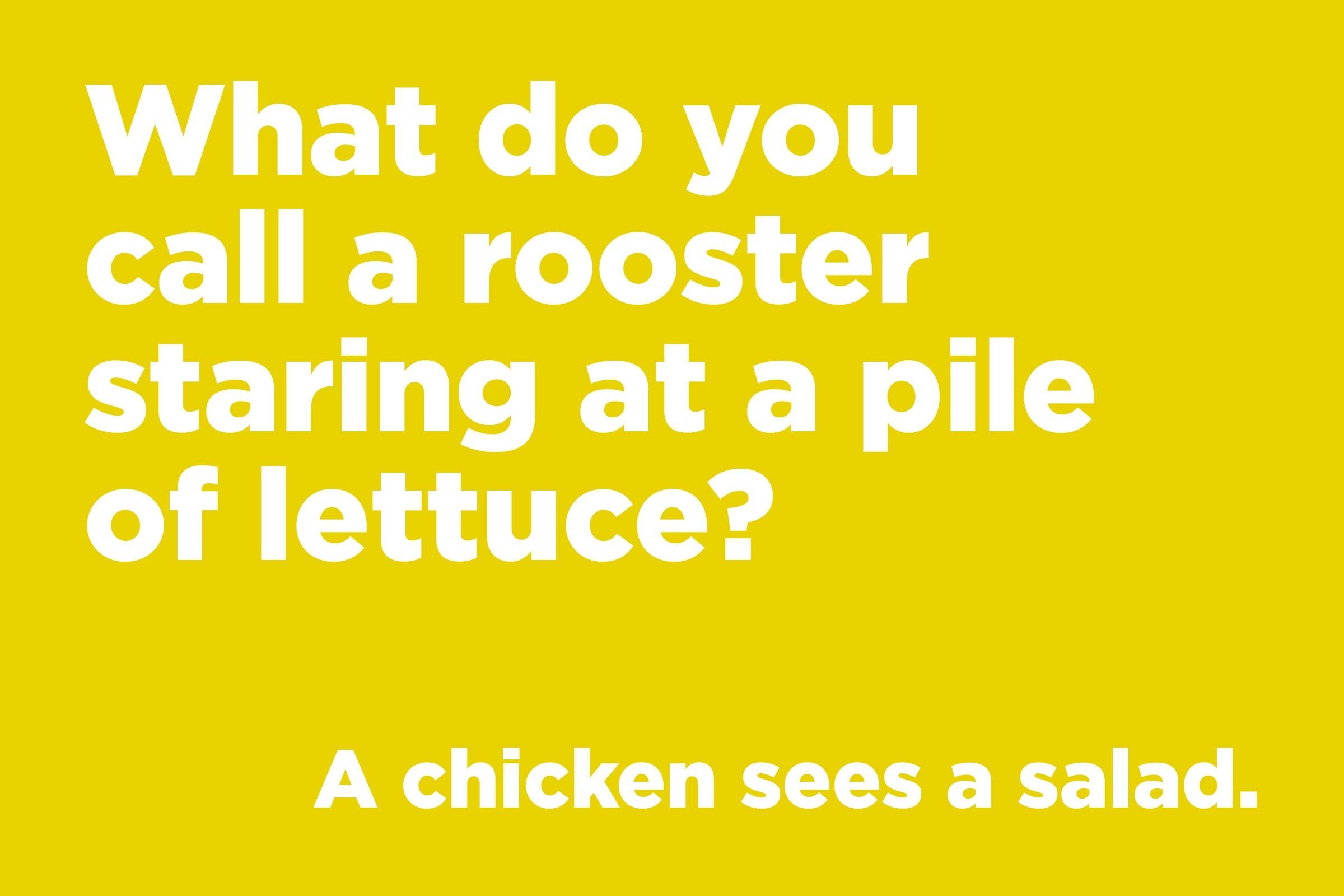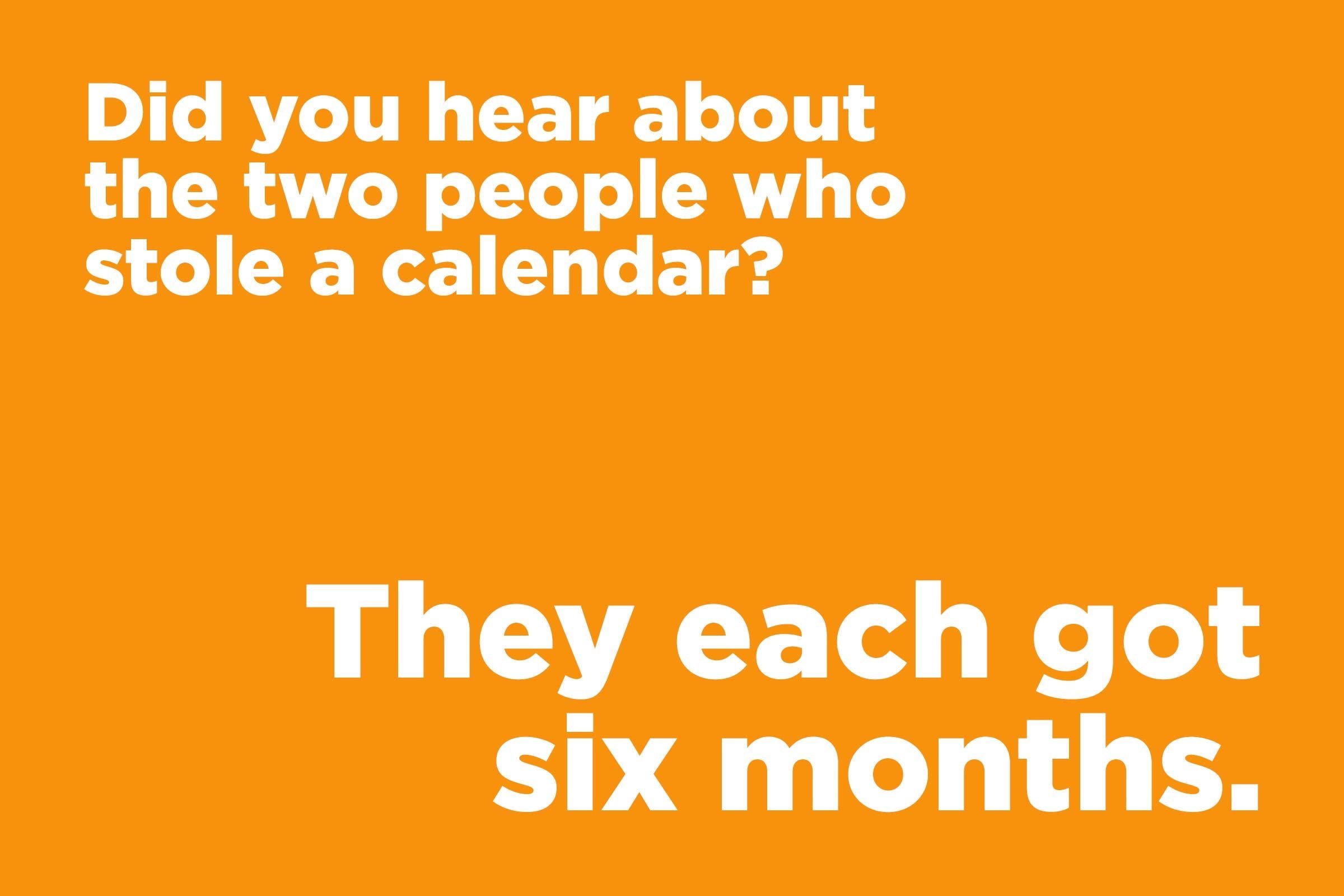Sometimes, the simplest things bring the biggest smiles, and that, you know, includes jokes that make you pause for just a moment before the lightbulb goes on. The question, "what do you put in a toaster," is a rather perfect example of this kind of lighthearted fun. It's a little bit of wordplay, a tiny puzzle for your mind, and then, a quick, almost immediate grin. These small instances of cleverness, honestly, can truly brighten up a whole day, adding a touch of cheer to the usual routine.
You see, humor, even the kind that might make you groan a little, really does have a way of bringing people closer together. My text, for example, shares a thought that humor "also creates connections and dispels awkwardness." A shared moment of amusement, perhaps a quick chuckle over something silly, tends to make things feel a bit more comfortable, doesn't it? It's a common thread that can link us, making interactions smoother and more pleasant, in a way.
So, we're going to take a closer look at why these straightforward jokes resonate with us. We'll explore, too, how they operate and what exactly makes them, well, funny. We'll even touch on the idea of a "rhetorical joke" mentioned in my text, the kind that perhaps doesn't have an obvious answer, or perhaps, the answer is so simple it's almost hidden in plain sight. It's an interesting thought, isn't it?
Table of Contents
- What Makes a Joke Like This Stick?
- The Joy of a Good Bad Joke - What Do You Put In A Toaster?
- How Does Humor Build Connections?
- When Does a Joke Miss the Mark? Understanding "What Do You Put In A Toaster" Reactions?
- The Simple Power of a Shared Chuckle
- Making Sense of the "Rhetorical" Joke - What Do You Put In A Toaster?
- Why We Need More Simple Laughs
- Passing Along the Amusement - What Do You Put In A Toaster?
What Makes a Joke Like This Stick?
The appeal of the "what do you put in a toaster" joke, in some respects, comes from its sheer straightforwardness. It plays on our common expectations, asking us to think about something that seems to have a more involved solution than it actually does. The true response is often something quite apparent, yet the way the question is phrased tends to lead our thoughts down a path of looking for something more complicated. This is, actually, a bit like the "rhetorical joke" that my text mentions, the kind that "doesn't have an answer either," because the solution is so simple it almost feels like a clever trick.
Our minds, you know, are usually wired to search for complex answers when presented with a question that sounds like a riddle. So, when the response to "what do you put in a toaster" turns out to be something as plain as "bread," there's a small moment of surprise, a slight jolt of recognition. That little unexpected twist, that moment of realizing the obvious, is often where the amusement truly lies. It's a gentle mental nudge, almost a playful trick on our expectations, and that, really, is what makes it memorable.
The Joy of a Good Bad Joke - What Do You Put In A Toaster?
My text makes a point that "if you’re a sucker for a good bad joke, you’re in luck," and this particular question about what goes into a toaster fits that description quite well. What, you might ask, defines a "bad" joke? Well, it tends to be the kind that's a bit predictable, maybe a little groan-worthy, or just plain silly. Yet, these jokes, like the one about the toaster, have a very special kind of appeal. They possess a certain charm that's hard to ignore, don't you think?
They are, in a way, quite approachable. Anyone can grasp them, pretty much without needing a lot of prior knowledge or super clever wordplay beyond the basic setup. They don't require you to be a master of puns or have a deep understanding of obscure references. They simply work on a very basic level of human experience and common objects, making them, arguably, universal in their simple appeal. It's just a little bit of fun for everyone, you know?
How Does Humor Build Connections?
My text points out that humor "also creates connections and dispels awkwardness," and this is a really important aspect of jokes, even simple ones. When we share a moment of laughter, perhaps over a straightforward joke like "what do you put in a toaster," it can, in fact, help to break down invisible walls between people. It shows a shared sense of lightheartedness, a willingness to find joy in small things, which is actually quite unifying.
Think about the social side of it. Telling a joke, getting a little "chuckle," or seeing someone "cracking up," as my text describes, creates a really positive interaction. It's a simple way of saying, "We're in this together, and we can find moments of happiness, even in the everyday." This kind of shared amusement helps to build a sense of community, a feeling of belonging, which is pretty much what we all look for, isn't it? It fosters a comfortable atmosphere, making interactions more pleasant and less formal, almost naturally.
This is, moreover, quite different from the "anonymous texts" my text mentions, the kind that are "decidedly not the kind of 'joke' that will make you seem" good. The "toaster" joke, on the other hand, is harmless. It’s inclusive. It doesn't rely on putting anyone down or making anyone feel uncomfortable. Its purpose is purely to bring a small, gentle moment of amusement, which is a truly wonderful thing to share with others, you know?
When Does a Joke Miss the Mark? Understanding "What Do You Put In A Toaster" Reactions?
My text brings up the idea that "if you have this phobia, you actually don’t know how to take a joke," which highlights an important truth: not everyone, apparently, appreciates every single joke. Some humor is meant for particular groups or specific situations. The "what do you put in a toaster" joke, while generally quite safe and universally understood, can still be met with different reactions. What one person finds amusing, another might find a bit dull or too obvious, and that's completely fine, you know?
The concept of a "sick joke" also appears in my text, which serves to show the really wide range of humor that exists. This particular joke about the toaster sits at the opposite end of that spectrum, being very gentle and innocent. It's important to remember that humor is very subjective. What tickles one person's funny bone might barely register for another. The aim of this joke, though, is generally to bring a simple, lighthearted moment, not to provoke strong reactions, which is a good thing, really.
The Simple Power of a Shared Chuckle
It's worth reiterating the sheer value of simple, everyday humor. It doesn't, you know, have to be incredibly complex or break new ground in the world of comedy. Sometimes, just a small, unexpected twist, or a play on words, is quite enough to bring a moment of joy. These little bits of amusement serve a really important purpose in our daily lives, adding a bit of lightness where it's needed.
My text talks about getting "ready to laugh your beach bod off" and how "These summer jokes will have you cracking up—and giving all your pals a chuckle." The main goal of any joke, especially one as straightforward as "what do you put in a toaster," is simply to get a positive, lighthearted response. It's about that shared moment of amusement, that collective sigh of relief or burst of laughter that reminds us to enjoy the little things. It’s a very human experience, isn't it?
Making Sense of the "Rhetorical" Joke - What Do You Put In A Toaster?
My text mentions that a "rhetorical joke doesn't have an answer either," and the "what do you put in a toaster" joke functions, in a way, quite similarly. Its answer is so self-evident, so plainly obvious, that the question itself almost feels like one without a true unknown. The humor doesn't come from a hidden, clever solution, but from the realization of the very simple truth that was there all along. It's a playful challenge to our expectations, really.
It forces us to pause for a moment of thought, to consider possibilities, and then, the realization hits, bringing a little smile or a soft chuckle. That brief mental journey, from slight confusion to clear understanding, is precisely where the humor in this kind of joke lies. It's a gentle reminder that sometimes, the most straightforward answer is the one that's been hiding in plain sight, which is kind of funny when you think about it.
Why We Need More Simple Laughs
In a world that can, at times, feel quite serious and demanding, simple jokes offer a truly necessary break. They remind us, you know, not to take everything so seriously all the time. These small bursts of humor provide a moment of lightness, a chance to step back and just enjoy a bit of silliness. They are a valuable tool for managing the daily grind, providing a mental refresh when things start to feel a bit heavy, which happens, doesn't it?
They are, arguably, a form of mental refreshment, a quick reset for our minds. They offer a way to lighten the mood, not just for ourselves, but also for those around us. Sharing a simple laugh, even at a joke that's a bit "bad," can create a ripple effect of good feelings, making the atmosphere around us feel a bit more cheerful and welcoming. It's a small act with a rather big impact, when you really think about it.
Passing Along the Amusement - What Do You Put In A Toaster?
The act of sharing jokes is, basically, a social ritual that's been around for ages. When we hear something that makes us smile or chuckle, we often feel a natural urge to pass it along, don't we? It's like finding a small treasure and wanting to share the discovery with others. This desire to share amusement is a very human trait, a way to connect and spread a bit of joy, which is quite nice.
Just like you might share exciting news with your friends and family, perhaps about something new you've found or experienced, sharing a simple joke is a way to pass along a bit of cheer. It's a small gift of amusement, a lighthearted moment offered to another person. This simple act of sharing helps to strengthen bonds and create a feeling of shared happiness, making the world feel, in some respects, a little brighter, one chuckle at a time.
This article has explored the simple yet powerful nature of the joke, "what do you put in a toaster," examining why such straightforward humor resonates with people. We looked at how these "good bad jokes" build connections and ease awkwardness, as referenced in the provided text. The discussion covered the concept of rhetorical jokes, the subjective nature of humor, and the importance of shared laughter in everyday life. Finally, we considered the social aspect of passing along amusement, highlighting how simple jokes contribute to positive human interactions.
- When Will Bucees Open In Arizona
- Secret Recipes Family Dining Photos
- Bond No 9 Karol G
- Kait Trujillo
- Lila Hospital Gown


